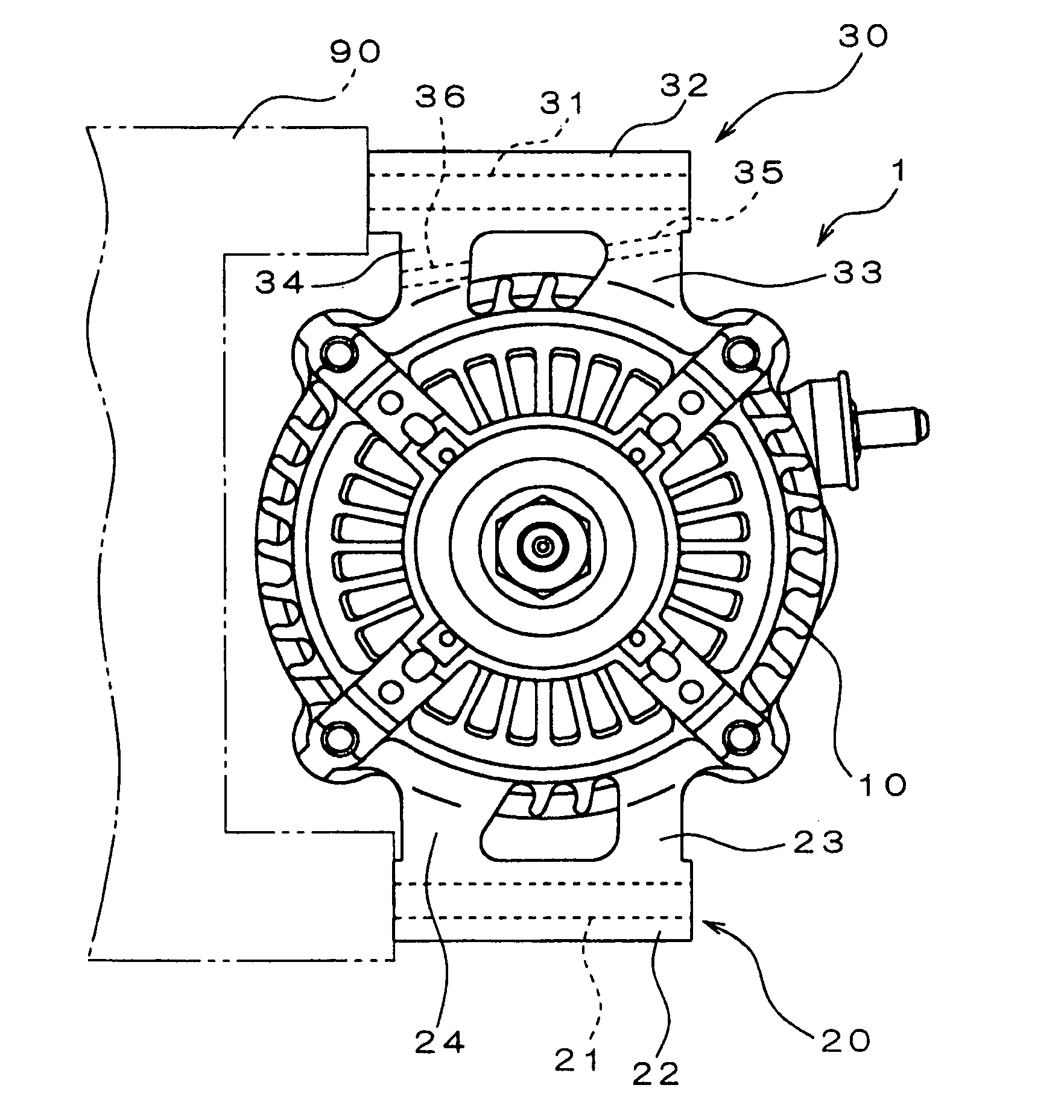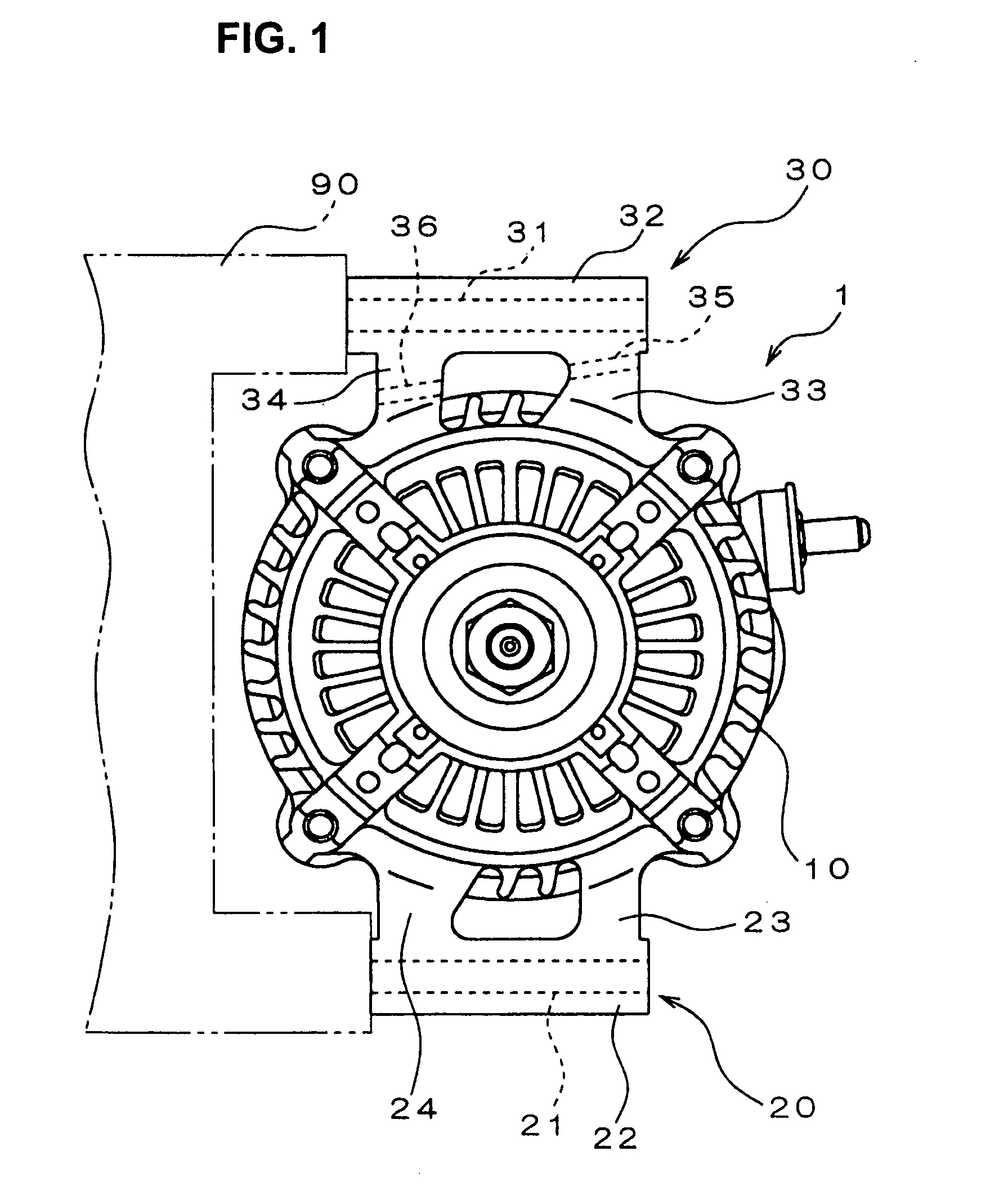Vehicle-use alternator enabling accurate control of position and attitude of the alternator during an operation of mounting the alternator in a vehicle
- Summary
- Abstract
- Description
- Claims
- Application Information
AI Technical Summary
Benefits of technology
Problems solved by technology
Method used
Image
Examples
Embodiment Construction
[0021] An embodiment of a vehicle-use alternator will be described in the following, referring to the drawings. FIG. 1 is a view in elevation of one end of a vehicle-use alternator 1 (referred to in the following simply as the alternator 1), while FIG. 2 is a corresponding side view in elevation. These illustrate the alternator 1 mounted on an engine block 90 of a vehicle engine, with a side-mounting configuration whereby the alternator 1 is attached to the engine block 90 by bolts which each have a central axis (i.e., longitudinal axis) oriented in a direction at right angles to the axis of rotation of the rotor of the alternator. As shown, the alternator 1 has a housing formed of a front-end housing 10 and a rear-end housing 12, which enclose a stator and rotor (not shown in the drawings). A part of one end of the shaft of the rotor extends outward from the front-end housing 10, and has a pulley fixedly attached thereon, for transmitting power from the engine to drive the rotor.
[0...
PUM
 Login to View More
Login to View More Abstract
Description
Claims
Application Information
 Login to View More
Login to View More - R&D
- Intellectual Property
- Life Sciences
- Materials
- Tech Scout
- Unparalleled Data Quality
- Higher Quality Content
- 60% Fewer Hallucinations
Browse by: Latest US Patents, China's latest patents, Technical Efficacy Thesaurus, Application Domain, Technology Topic, Popular Technical Reports.
© 2025 PatSnap. All rights reserved.Legal|Privacy policy|Modern Slavery Act Transparency Statement|Sitemap|About US| Contact US: help@patsnap.com



